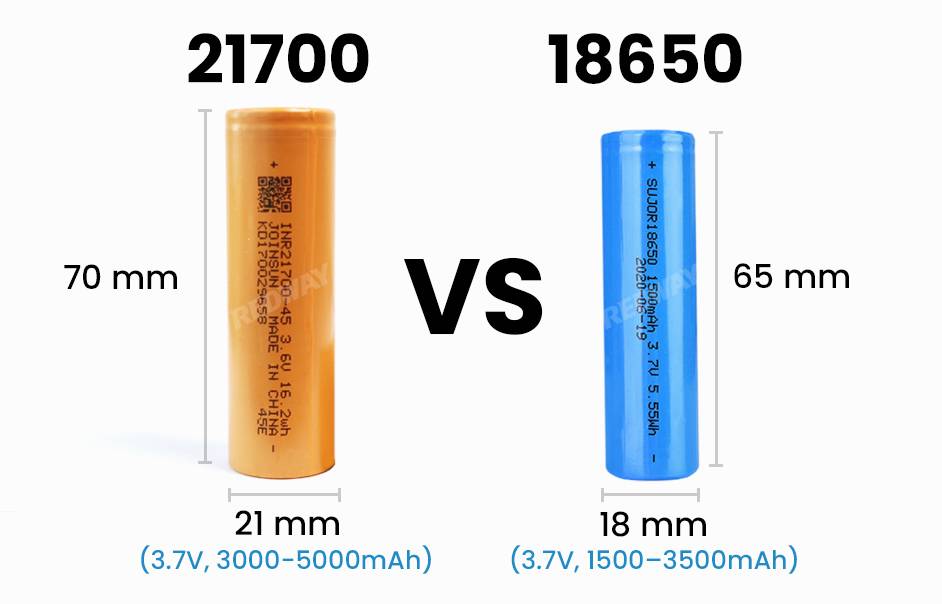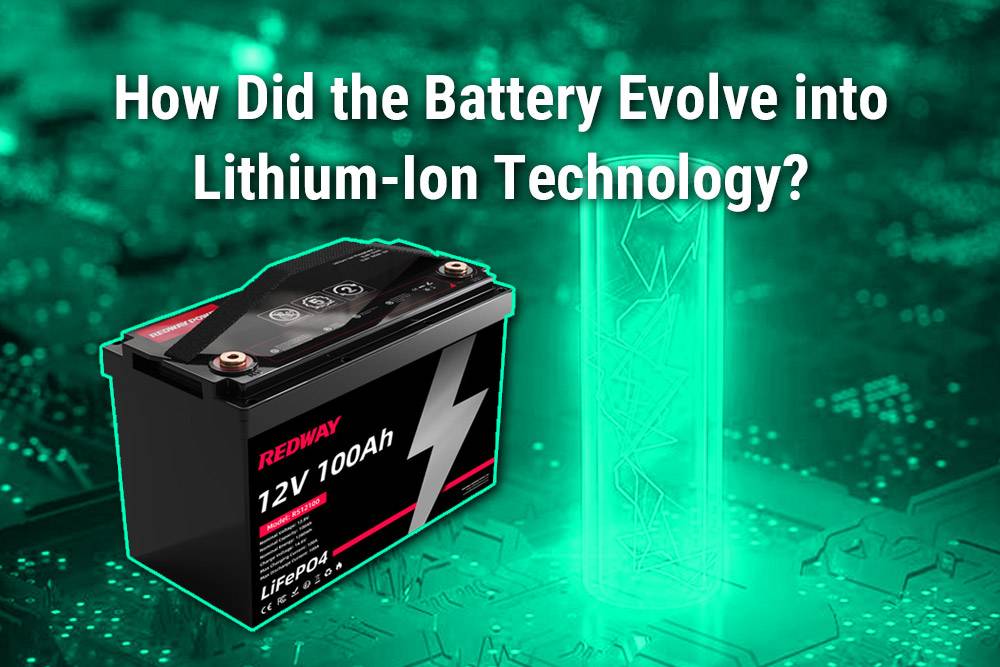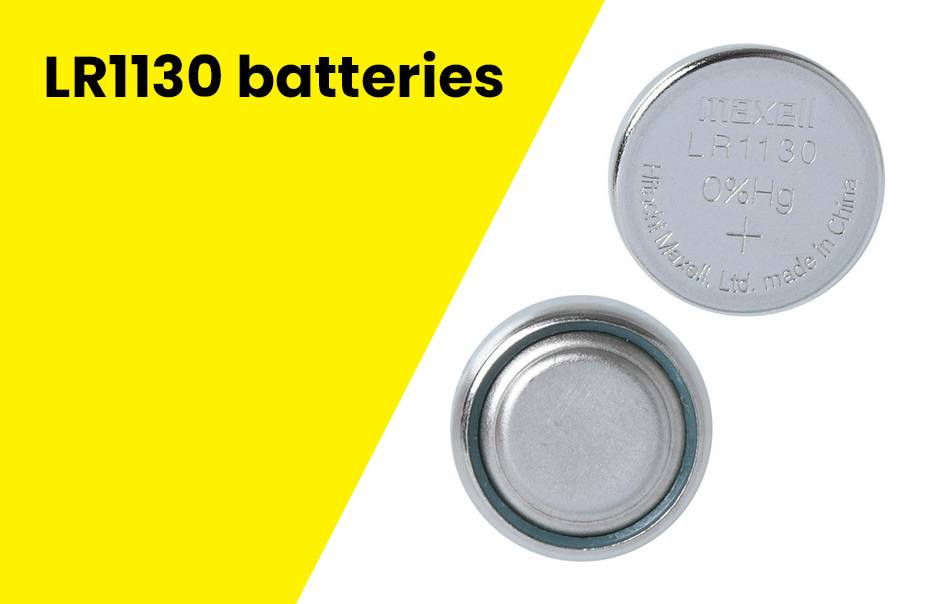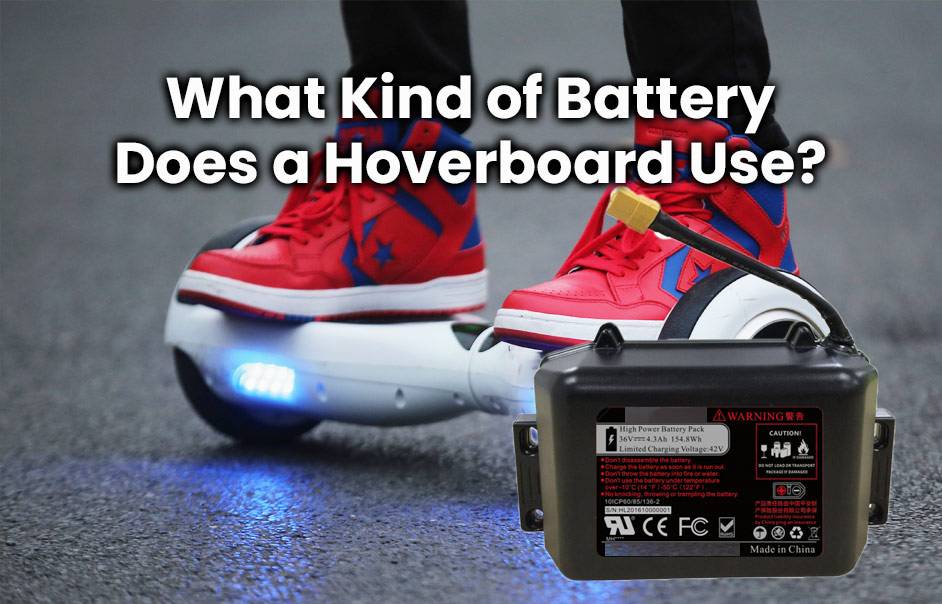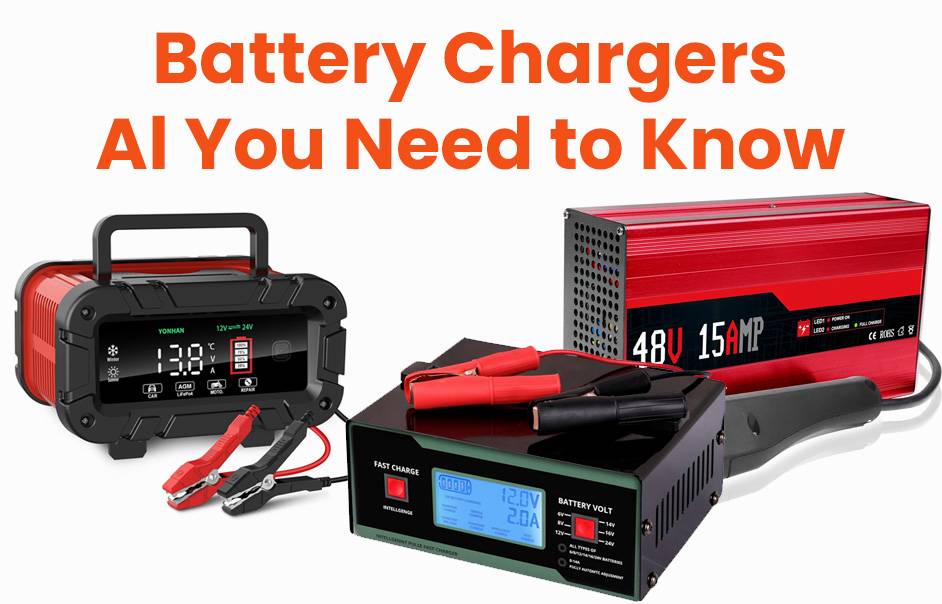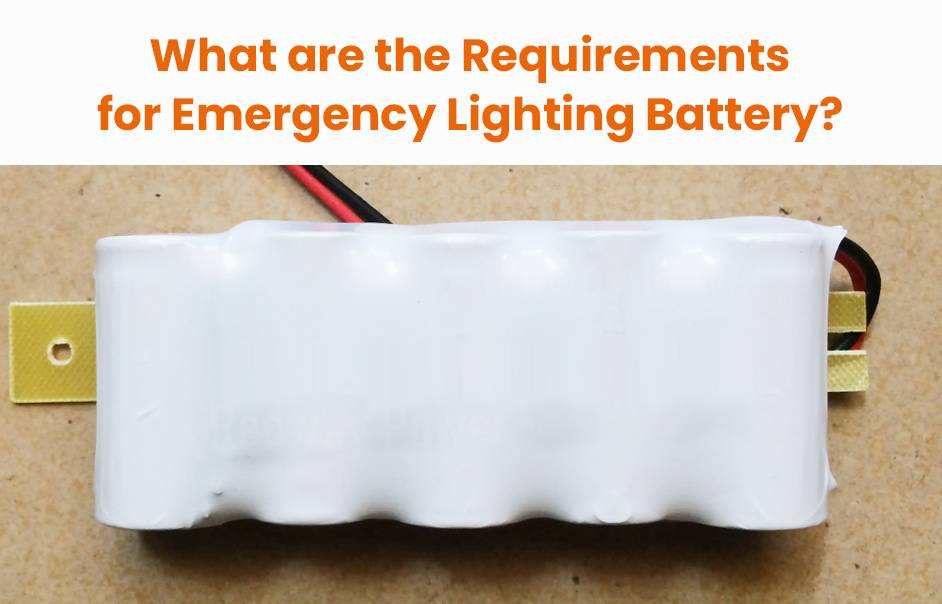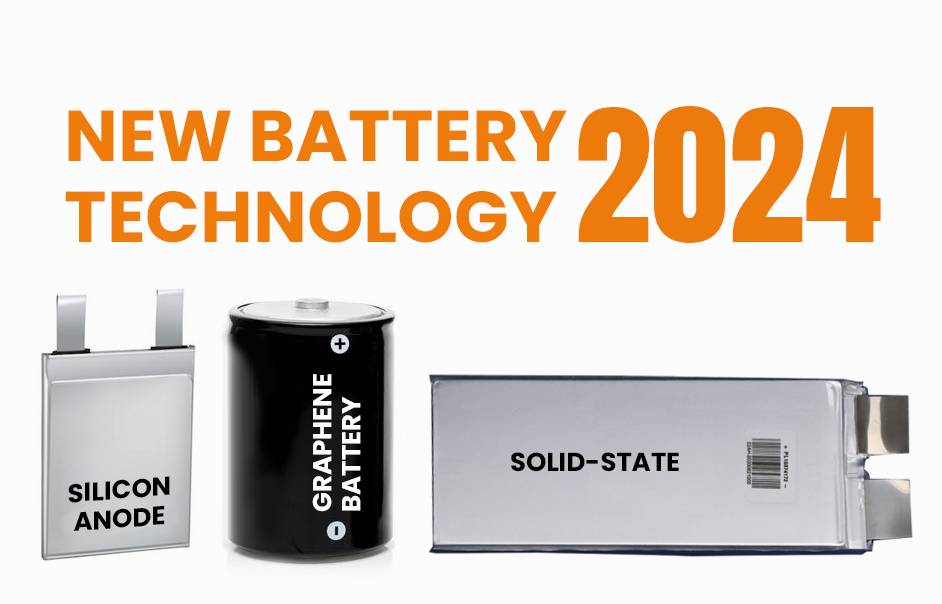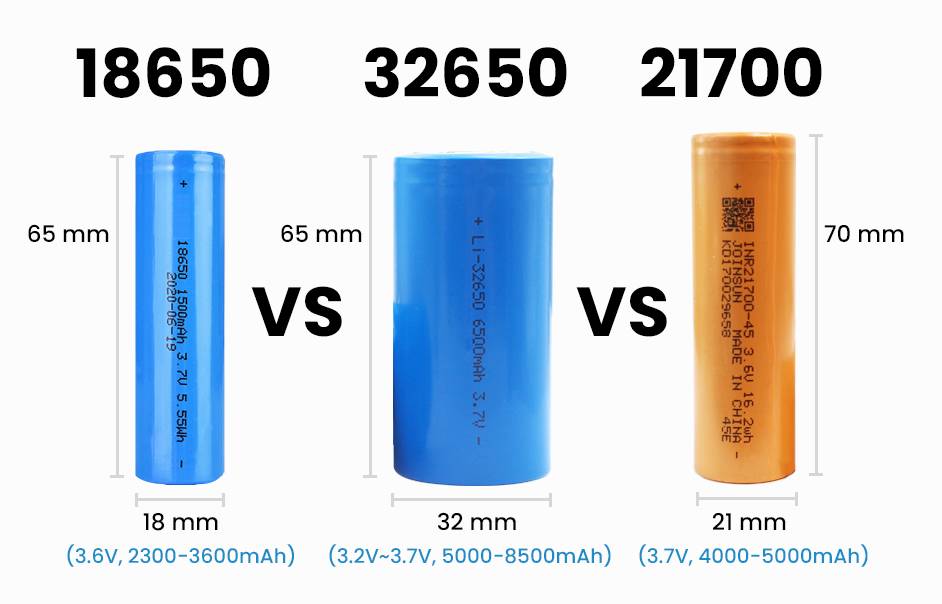18650 cells are among the most popular rechargeable lithium-ion batteries due to their widespread availability and reasonable pricing. While they provide distinct advantages, they may be slightly more expensive than the larger 21700 lithium batteries.
What is 21700 battery?
A “21700 battery” is a rechargeable lithium-ion battery with dimensions of 21mm in diameter and 70mm in length. Initially popularized in electric cars like Tesla and electric scooters, these batteries are now commonly used in vaping devices and flashlights.
What is the advantages of 21700 cells?
21700 cells offer significant advantages for various applications, making them a popular choice in the world of lithium-ion batteries:
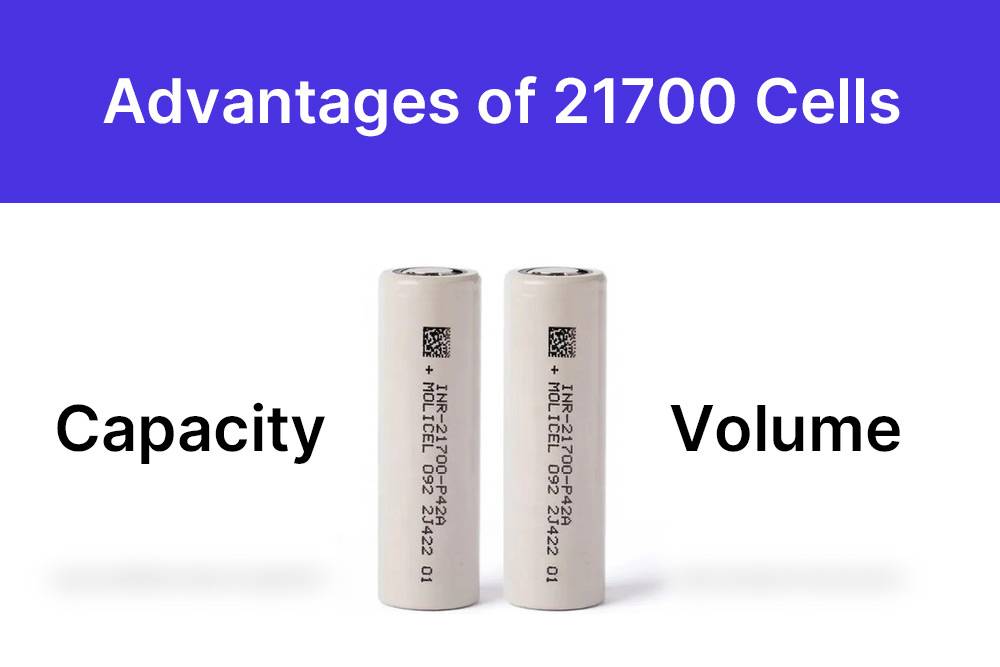
- Higher Capacity: These cells boast a larger capacity, providing devices with more extended and efficient power.
- Higher Discharge Rate: With a higher discharge rate, 21700 cells can deliver power more quickly, catering to devices requiring bursts of energy or high power output.
- Improved Energy Density: The enhanced energy density allows these cells to store more energy in a given volume, making them ideal for applications where space is a premium.
- Better Thermal Performance: 21700 cells exhibit improved thermal performance, handling heat more effectively during charging and discharging, contributing to overall safety and longevity.
- Versatile Applications: Thanks to their combination of high capacity, discharge rate, and energy density, 21700 cells find use in various devices, including electric vehicles, flashlights, and high-performance electronics.
- Tesla Usage: The adoption of 21700 cells by Tesla, particularly in the Model 3, underscores their advantages in terms of energy efficiency and performance.
It’s important to consider that specific advantages may vary between different brands and models of 21700 cells, with factors like application and battery chemistry influencing their performance. Choosing the right 21700 cell depends on these factors for optimal results.
How many types of 21700 cells are available in the market?
The market presents a range of 21700 cells, featuring diverse types and specifications. Prominent manufacturers like Samsung, LG, Panasonic/Sanyo, and Tesla produce multiple models tailored for various applications. Each brand and model may exhibit unique characteristics, including capacity and discharge rate, catering to different uses. Redway 21700 battery cells are now available, providing further options for consumers.
What is 18650 Battery?
An “18650 battery” is a rechargeable lithium-ion battery measuring 18mm in diameter and 65mm in length. Known for their impressive capacity and rapid power delivery, these batteries are commonly utilized in flashlights, laptops, scooters, and other high-energy-demand devices.
Notably, even Tesla Model S cars utilize 18650 cells, underscoring their versatility. Initially gaining prominence in electric cars and scooters, especially in Tesla vehicles.
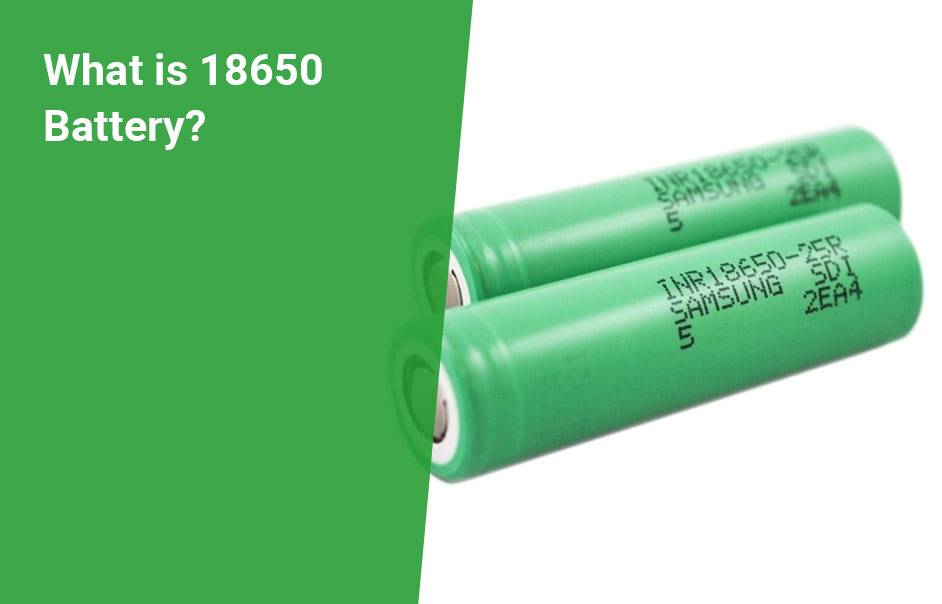
How many types of 18650 battery cells are available in the market?
There are numerous types and models of 18650 cells available in the market, produced by various manufacturers. the lifespan of most NCM 18650 cells are roughly 300-1000 times. Different brands offer 18650 cells with varying specifications, capacities, discharge rates, and chemistries to meet the diverse needs of applications such as laptops, flashlights, vaping devices, and electric vehicles.
21700 vs 18650 lithium battery in details
When comparing 21700 and 18650 lithium-ion batteries, it’s essential to consider factors like size, chemistry, voltage, charging, discharging, applications, capacity, and advantages.
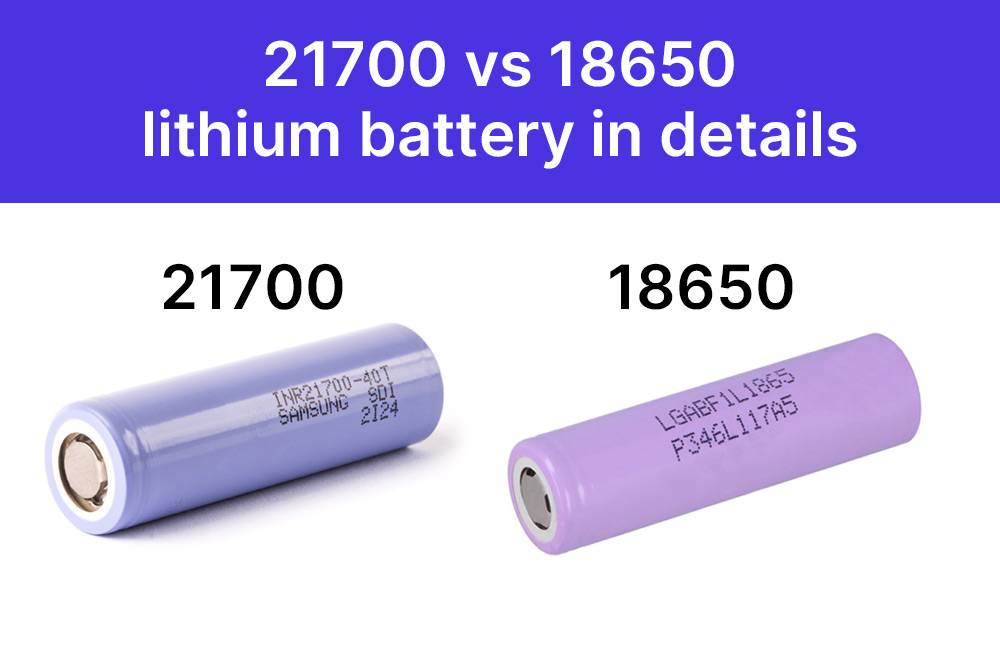
- Size:
- 21700 is larger at 21mm x 70mm, while 18650 is smaller at 18mm x 65mm.
- Chemistry:
- Both batteries utilize lithium-ion technology for power.
- Voltage:
- They operate at approximately 3.6 – 3.7 volts.
- Charging:
- Both can be charged with a standard lithium-ion battery charger.
- Discharging:
- Both provide quick power for various devices.
- Applications:
- They power devices such as laptops, flashlights, and electric vehicles.
- Capacity:
- 21700 stores more energy than 18650.
- Advantages:
- 21700 is suitable for high-powered devices, while 18650 has less capacity and is not ideal for high-powered gadgets.
To illustrate the variance in power and capacity between 21700 and 18650 lithium batteries, we conducted tests using the Fenix HT18 hunting flashlight, boasting 1500 lumens. This flashlight seamlessly accommodates both battery types with an insert. The disparities in performance are evident in the light modes:
With a 21700 Li-Ion battery:
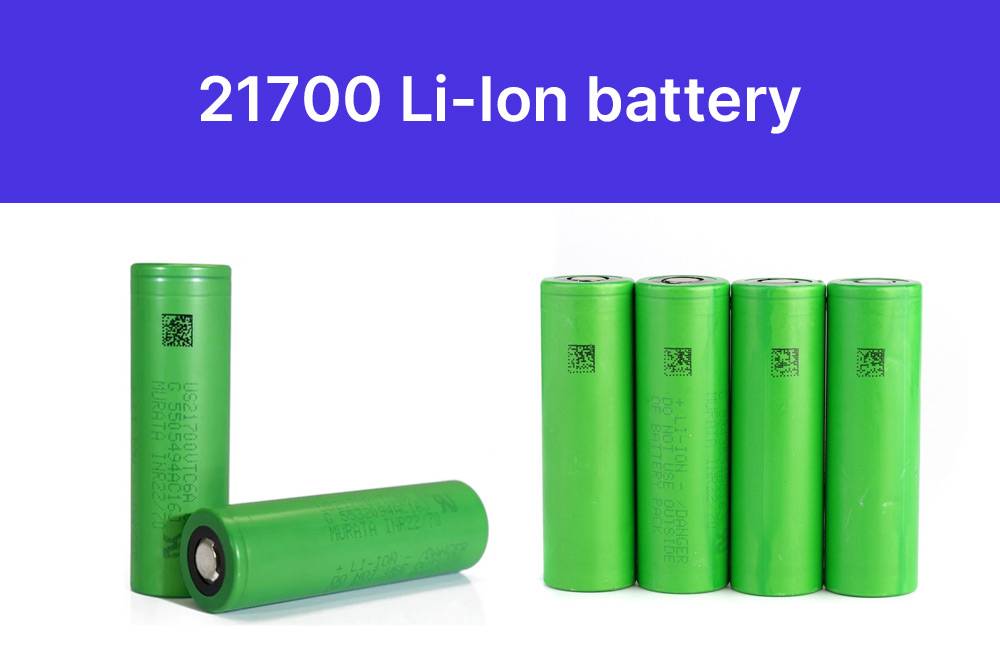
- Turbo mode emits 1500 lumens, lasting approximately 1 hour and 40 minutes.
- High mode offers 500 lumens, with a runtime of around 4 hours and 15 minutes.
- Medium mode delivers 150 lumens for approximately 20 hours and 15 minutes.
- Low mode provides 30 lumens, enduring for 61 hours.
- Strobe mode emits 1500 lumens.
When powered by an 18650 Li-Ion battery:
- Turbo mode outputs 1100 lumens, lasting roughly 1 hour and 40 minutes.
- High mode maintains 500 lumens for about 2 hours and 15 minutes.
- Medium mode delivers 150 lumens, lasting approximately 14 hours and 10 minutes.
- Low mode provides 30 lumens, enduring for approximately 53 hours.
- Strobe mode emits 1100 lumens.
These results vividly showcase the differences in performance between the two battery types, with the 21700 demonstrating slightly higher lumens and longer burn times across various modes compared to the 18650.
In summary, understanding these differences helps in choosing the right battery for specific electronic devices, considering factors like size, capacity, and intended applications.
21700 vs 18650 battery, which one is better?
Selecting between a 21700 and 18650 battery depends on individual requirements. 21700 batteries provide greater capacity, discharge rates, and energy density, ideal for power-intensive applications. However, their larger size may impact compatibility. Meanwhile, 18650 batteries, being smaller and widely available, offer versatility, albeit with lower capacity. Consider your device’s space, power needs, and compatibility for a tailored choice. There’s no universal “better” option; the decision revolves around the specific demands of the application.
Can you charge 21700 batteries in a 18650 charger?
No, it is not recommended to charge 21700 batteries in a charger designed for 18650 batteries. Although both batteries use lithium-ion technology, the 21700 battery is larger with higher capacity and discharge rates than the 18650 battery. Consequently, the charging current and voltage needed for the 21700 battery may differ from what the 18650 charger is designed to provide.
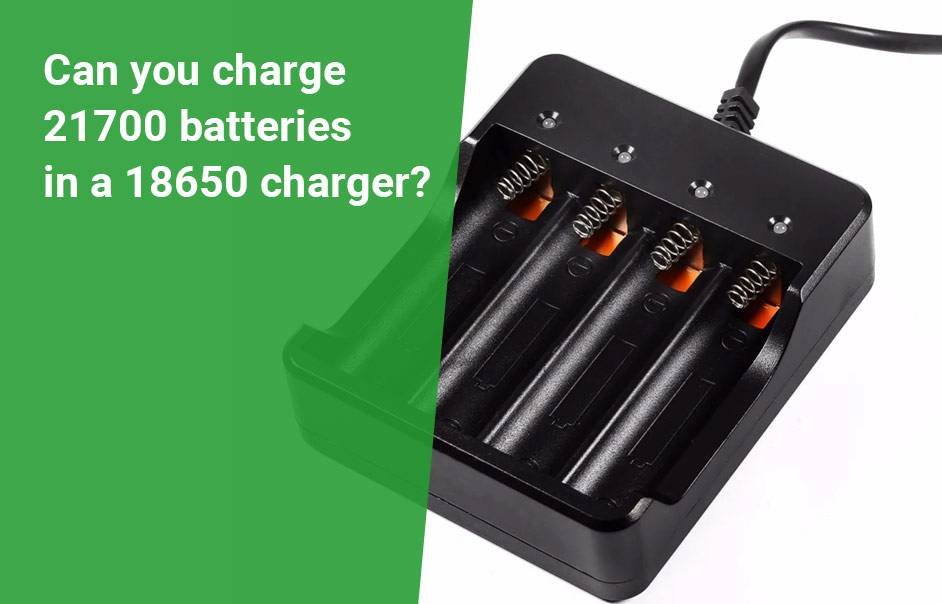
Utilizing an incompatible charger may lead to undercharging, overcharging, or overheating, risking damage to the battery and posing safety hazards. To ensure proper charging and mitigate potential risks, it is crucial to use a charger specifically designed for 21700 batteries.
FAQs
21700 vs 18650 batteries in cost
Choosing between 21700 and 18650 batteries involves considering factors like brand, capacity, and purchase location, impacting cost variations.
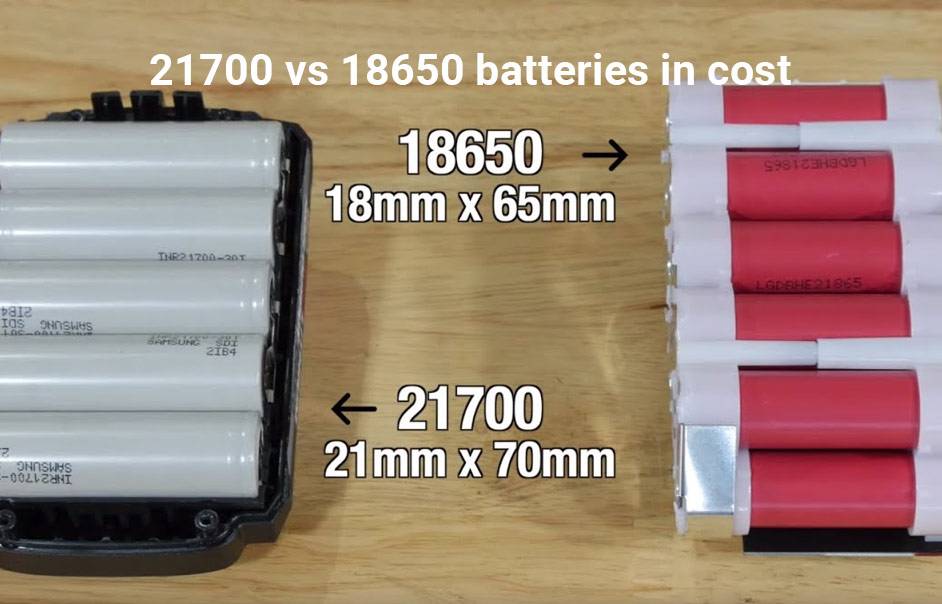
For instance, a Samsung INR21700-30T may cost around $8.99, while an LG MJ1 18650 could be around $4.49.
Redway offers competitive prices; check their 21700 battery wholesale price.
Generally, 21700 batteries are pricier due to higher capacity and longer device powering capabilities, compounded by their relative scarcity. When choosing a battery, assess cost and capacity for an optimal decision within budget constraints.
Does 21700 last longer than 18650?
Yes, generally, a 21700 battery lasts longer than an 18650 battery due to its larger size and higher capacity. The larger size allows for a higher energy density, storing more energy than an 18650 battery. With a typical capacity range of 3000 – 5000mAh for a 21700 battery and 1500 – 3500mAh for an 18650 battery, a fully charged 21700 battery provides more energy and runs for a longer period. Actual performance depends on factors like device usage, discharge rate, and temperature, influencing the battery’s effectiveness in specific applications. The choice between 21700 and 18650 batteries hinges on the device or application’s specific requirements.
Who produce 21700 and 18650 cells?
18650 cells, widely used in various electronic devices, are manufactured by several global companies. Key producers include Panasonic, LG Chem, Samsung SDI, Sony, and others. Additionally, Chinese manufacturer Redway Battery is among the reputable companies in this market. When procuring lithium-ion batteries, selecting a trusted manufacturer is crucial for ensuring both quality and safety.
How to choose the correct lithium battery for your electric mobility?
Choosing the right lithium battery for your electric mobility device involves considering key factors to ensure optimal performance and safety:
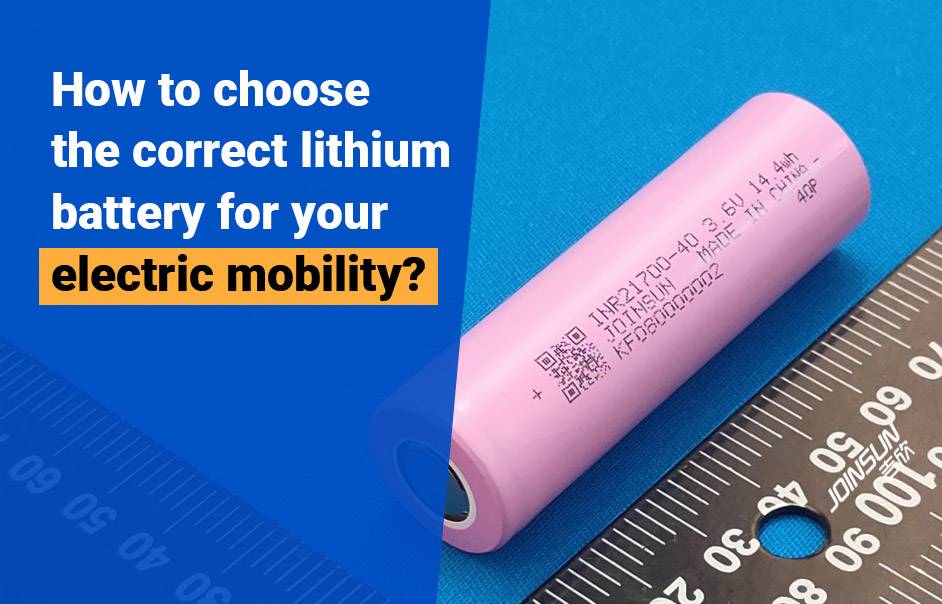
- Capacity:
- Determine the battery size based on the distance you aim to cover on a single charge, considering factors like weight and cost.
- Discharge Rate:
- For faster devices like e-bikes, prioritize a battery that can deliver power quickly, especially for uphill climbs or acceleration.
- Size and Weight:
- Ensure the battery fits seamlessly into your device without compromising balance or adding excessive weight.
- Safety:
- Prioritize batteries with built-in safety features, such as overcharge protection or safeguards against sudden power drains.
- Compatibility:
- Confirm that the battery aligns with your device’s charging system to avoid compatibility issues.
- Budget:
- Balance your needs with your budget, considering that larger, more powerful batteries may come at a higher cost.
For expert guidance and tailored battery solutions, don’t hesitate to reach out to Redway Battery’s engineering team. Ensure a reliable and efficient power source for your electric mobility device.

